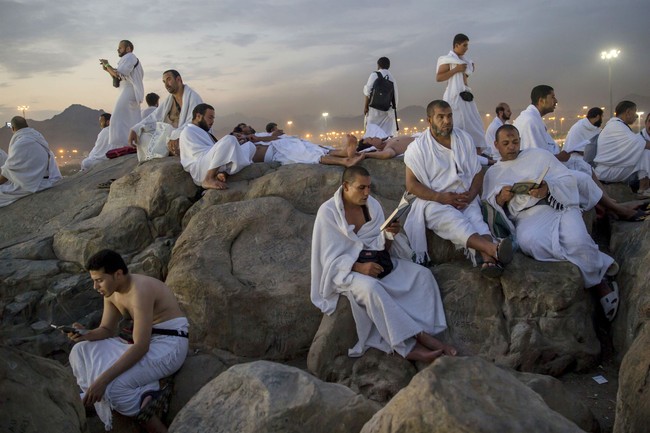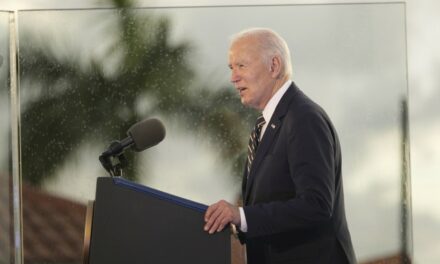We support our Publishers and Content Creators. You can view this story on their website by CLICKING HERE.

What are your tuition dollars buying these days? Well, let’s see. At the University of South Carolina, you can learn all about how “Islamic Magic” can be used both as a weapon against the evil Western world and a remedy for the damage it has done. Yes, this is the kind of thinking that gets formerly ordinary kids joining Antifa and living in pup-tents for Hamas.
Advertisement
Matthew Melvin-Koushki is “Associate Professor of Islamic History at the University of South Carolina.” He “specializes in early modern Islamicate intellectual and imperial history, with a focus on the theory and practice of the occult sciences in Timurid-Safavid Iran and the wider Persianate world to the nineteenth century.” He has a couple of books in the works about Islam and the occult, and he is “also cofounder of the international working group Islamic Occult Studies on the Rise (IOSOTR).”
A busy academic, Melvin-Koushki is also a canny self-promoter, saying in his bio that his work “constitutes a new analytical framework for the study of early modern Persianate societies specifically and Western early modernities generally—one that retrieves Islamic Magic as ultimate stumblingblock and hence weapon and pharmakon against the violently colonialist yet still endemic story of the Rise of the West.”
Got that? “Islamic Magic” is a “weapon” against the evil colonialist “story of the Rise of the West,” which is “still endemic.” Apparently Matthew Melvin-Koushki means by this that the West, where he makes a comfortable living as a professor, is still “violently colonialist,” and that “Islamic Magic” can still be used as a weapon against this violent colonialism. If he has any plans to move to place where a practitioner of “Islamic Magic” might be more comfortable, he has not disclosed them. Apparently, he intends to continue living right in the belly of the beast.
Advertisement
His bio goes on to explain how the Islamic world was far superior to the “much smaller and rabidly insular Latin Christian Far West” by the sixteenth century, but that “radically disproportionate, eurocentric, orientalist and occultophobic historiography of early modern science” maintains the hegemony of the inferior West.
Spanning fully two-thirds of the human race by the sixteenth century, and from the Atlantic Ocean to the Pacific, the Islamic world was committed to Western, Neoplatonic-Neopythagorean cosmology as philosophical-imperial technology to a degree unparalleled by the much smaller and rabidly insular Latin Christian Far West, as Melvin-Koushki has shown. Yet the latter remains hegemonic in the radically disproportionate, eurocentric, orientalist and occultophobic historiography of early modern science, teleological touchstone for all other human (and nonhuman) ways of knowing and doing in the world. To break this colonialist curse, he has found several counterspells to be especially effective: Magic and the Weird, Persian Pythagoreanism and the Occult-Scientific Revolution, Occult Humanism and Islam-as-the-Greater-West, Cosmic Philology and the Superhumanities.
Islam in the “far vaster, wealthier and more cosmopolitan Persianate world” was so superior to the West that it even gave rise to the Scientific Revolution, leading to “transformations in everything from imperial architecture and ideology to astrophysics and computing”:
Advertisement
His favorite occult sciences are geomancy and lettrism, kabbalah’s twin. Indelibly Afro-Islamic, they are ideal decolonial windows onto early modern Pythagorean-Platonic mathesis, the new-old cosmology positing the world as a second mathematical Book to be decoded, then magically recoded, by the enterprising information scientist: the grimoire as grammar of being and becoming. Perniciously if predictably, this mathematization of the cosmos continues to be reduced in modern historiography to the basis of the “Scientific Revolution”—mother of all Kuhnian paradigm shifts—as an exclusively Latin Christian affair. Yet it began not in western Europe but in the far vaster, wealthier and more cosmopolitan Persianate world, culturally equally the West, where it helped spark other, more gorgeously revolutionary transformations in everything from imperial architecture and ideology to astrophysics and computing; its exponents occupied the same sociopolitical niche that Silicon Valley does today—and were even more devoted to entheogenic transhumanism. Hence the catchphrase running like a red thread throughout Melvin-Koushki’s larger project: Islam is Magic; Magic is Science; Science is Empire.
“Entheogenic transhumanism” refers to ingesting various psychoactive substances and imagining that you’re transcending the bounds of ordinary human perception.
Advertisement
It appears that Matthew Melvin-Koushki has already done that, as his Islamic Scientific Revolution is more imaginary than real, and once again leads to the question that dogs all such claims of magnificent Islamic achievements of the past: if they got that far, why couldn’t they follow through? If the Islamic world really was really the site of all this intellectual and cultural advancement, how did it happen that the vastly inferior West is not only the place where the Scientific Revolution can be readily demonstrated to have actually occurred, but is also the place where Matthew Melvin-Koushki himself lives, no doubt in large part because there are places such as Silicon Valley in the West and not, despite his claims, in Iran or its environs.
Is the intellectual and cultural superiority of the West of the West really just the pernicious work of “eurocentric, orientalist and occultophobic” historians? If historians are capable of such a massive sleight of hand, Melvin-Koushki should be studying their magical powers, not those of Islamic shamans. The intellectual, economic, social and cultural development of the West, and the comparable lack of development of the Islamic world, is obvious even to the casual observer, as well as to the multitudes of Muslims who have made and are making their way to the West now in order to take advantage of the benefits of living there. If Islamic is magic and magic is science and science is empire, then where is that empire? Or is it simply an empire of his mind to which he retreats in pharmaceutically induced bliss?
Advertisement
Matthew Melvin-Koushki, like so very many other academics, is at war with reality, and reality always, in the end, emerges victorious. His academic house of cards stands now during our age of absurdity, but once the left’s cultural hegemony has receded, as it inevitably will, the self-indulgent madness of this sort of thing will be clear to everyone. Until then, however, who knows how many young Americans will buy the madness he is peddling.

 Conservative
Conservative  Search
Search Trending
Trending Current News
Current News 






